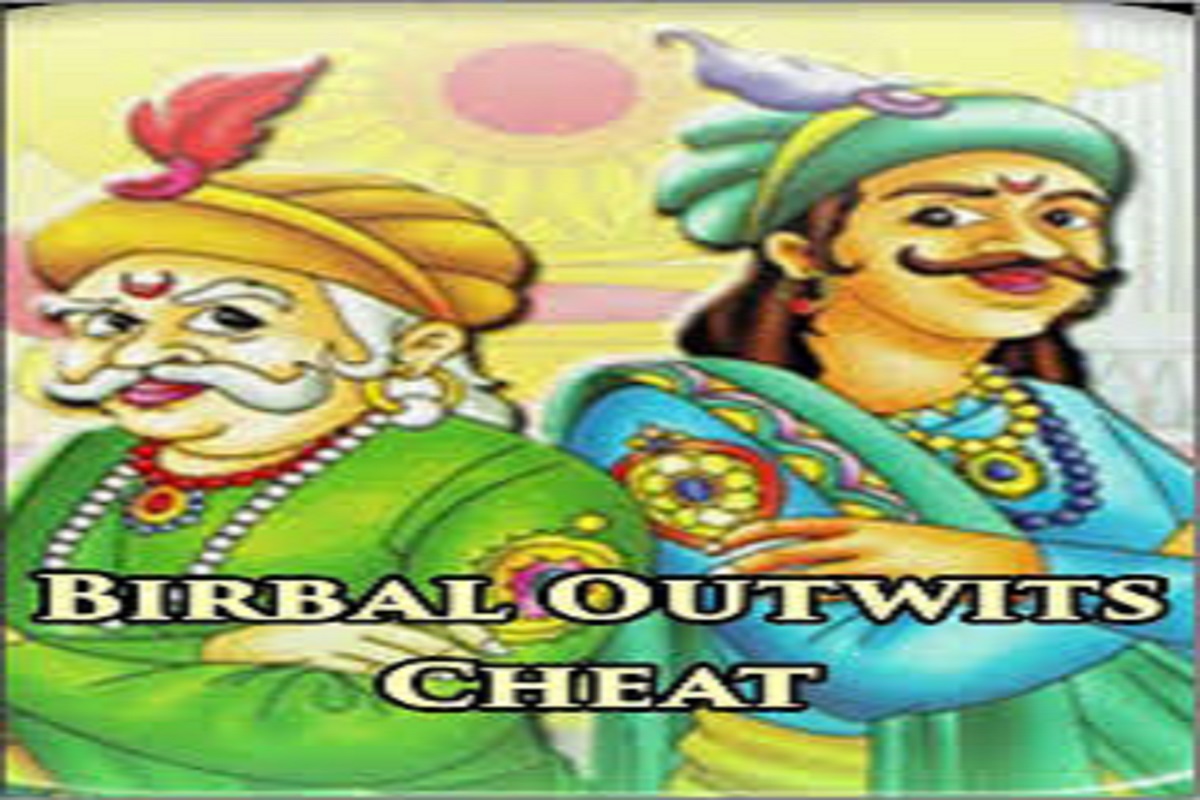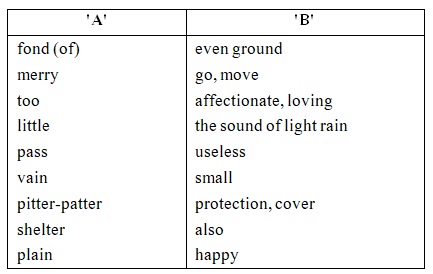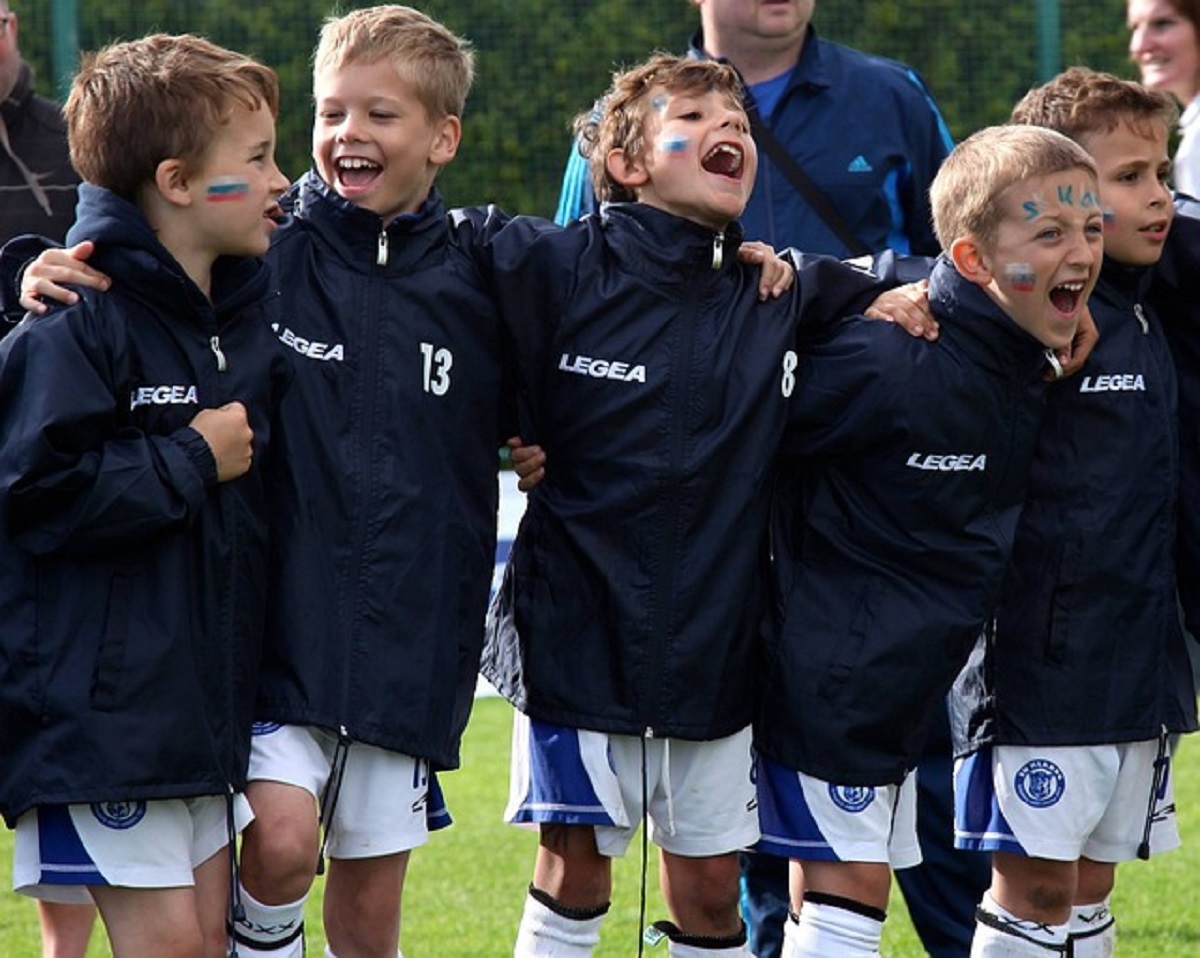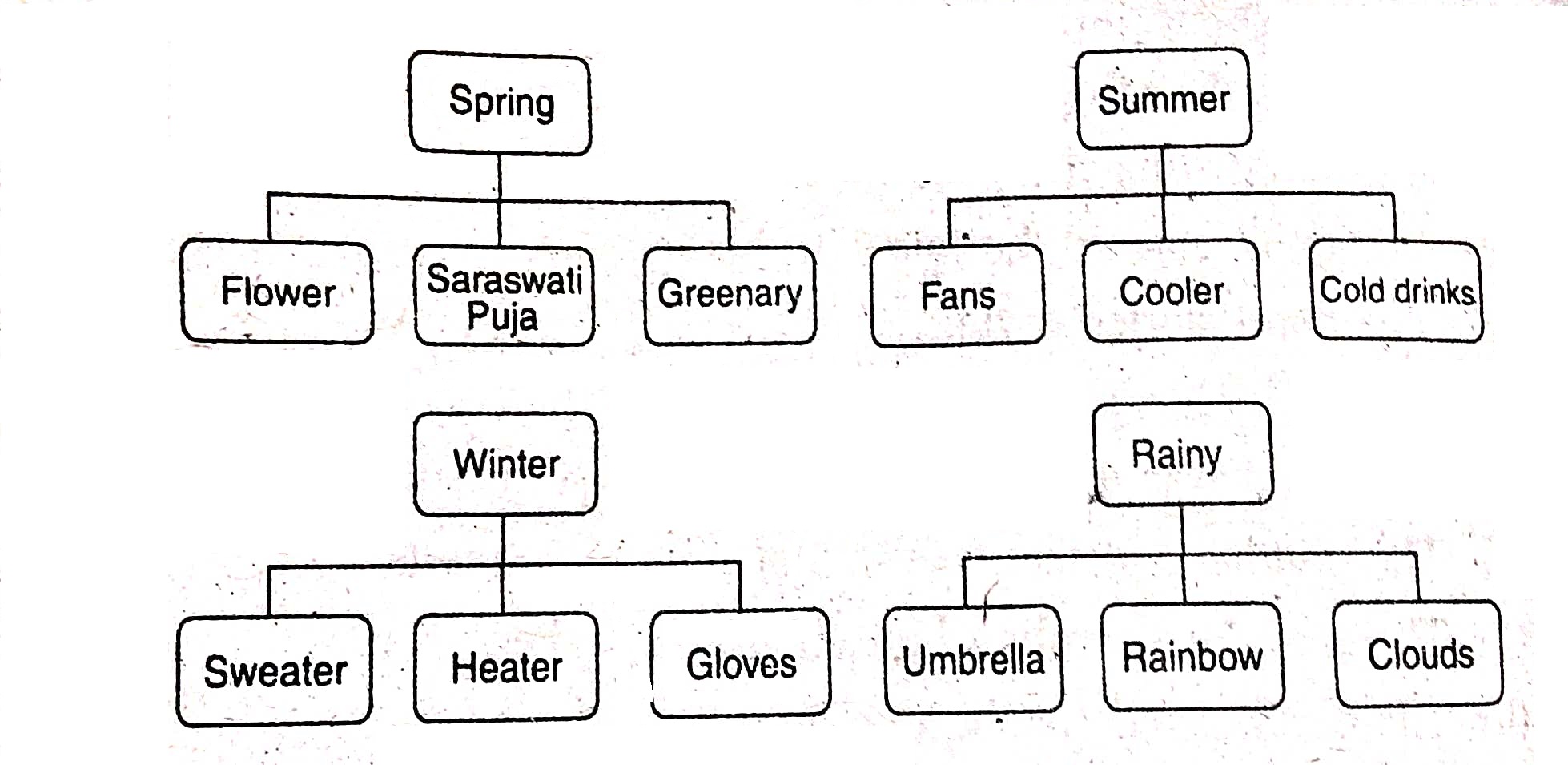BSEB Bihar Board English Book Solutions Chapter 16. Books : Our Best Friends Class 7th Solutions (पुस्तकें : हमारे सर्वोत्तम मित्र) Books Our Best Friends Class 7th Solutions
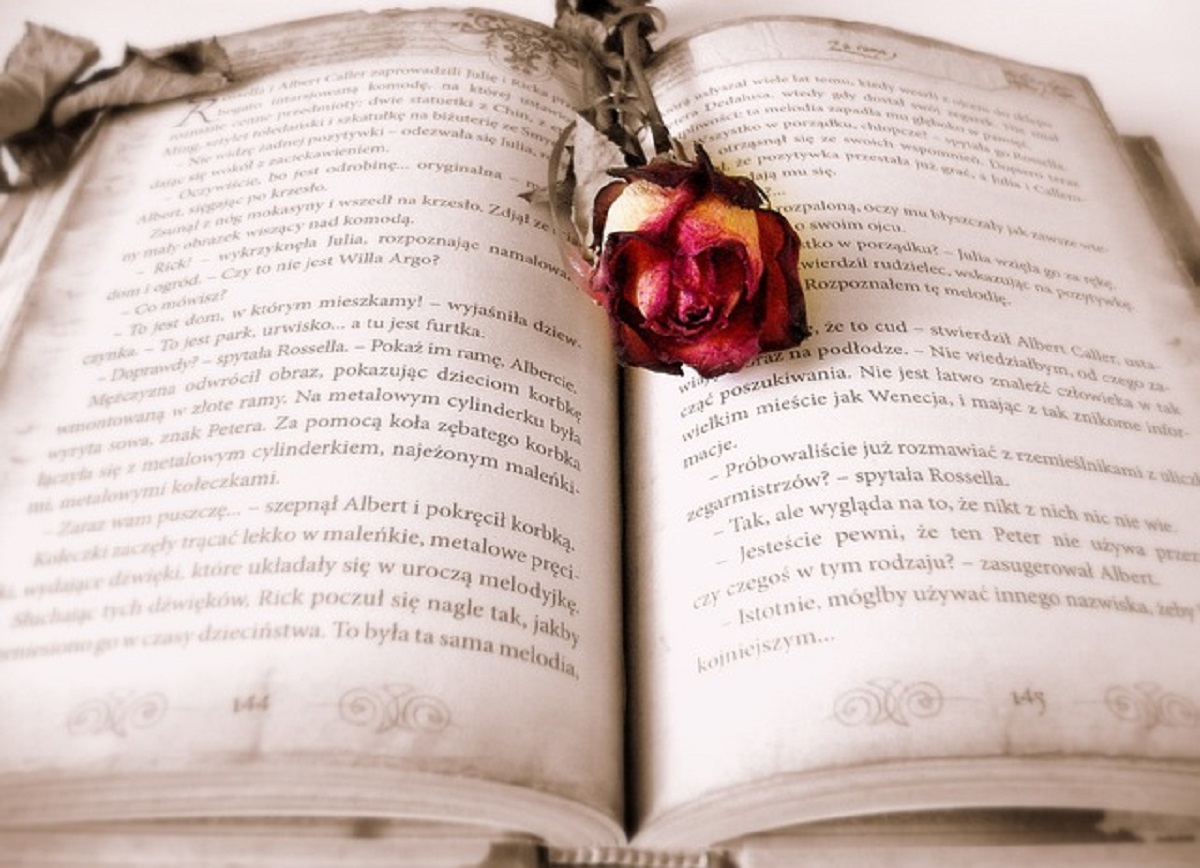
16. Books : Our Best Friends
(पुस्तकें : हमारे सर्वोत्तम मित्र)
TEXTBOOK QUESTIONS AND THEIR ANSWERS
B. Let’s Comprehend :
B.1. Think and Tell:
Q. 1. What worlds of wonder are our books?
Ans. Our books are worlds of wonder of new ideas and people rising in our fancies and eyes, and new land and age, etc.
Q. 2. What are the books compared to ?
Ans. The books are compared to the worlds of wonder, and a magic box full of all things for their lovers.
B.2. Think and Write:
B.2.1. True or False:
Q. 1. Which of the following statements are true according to the poem ? Write true or false in front of each statement in the space provided.
(a) Reading.books is boring …………
(b) Books tell us nothing new …………
(c) Books tell us about far away places ……………..
(d) Books do not tell us anything about times gone by………….
(e) Books help us imagine about the people we have never met……………
Ans. (a) false, (b) false, (c) true, (d) false, (e) true.
B.2.2. Tick (/) the most appropriate answer to each of the following questions:
1. The line ‘The room we sit in melts away’ means that :
(a) There is ice in the room that starts melting
(b) We forget that we are sitting in the room
(c) The room is broken down
(d) The room we are sitting in is made of ice
2.The words ‘our chosen friend’ refer to:
(a) our best friend in school
(b) a friend who we like playing with
(c) a character whom we like in a story
(d) the friend we choose to study with
3. Here’s our body in the chair,
But our mind is out there.
The poet feels that when we are reading books we are sitting in chairs but our minds are:
(a) at school
(b) at home
(c) at the places and times we are reading about
(d) in the playground.
Ans. 1. (b), 2. (b), 3. (c)
B.2.3. Answer the following:
Q. 1. For whom do books hold things?
Ans. The books hold things for the readers, their lovers.
Q. 2. We unclock a room with the help of a key. How can a book be unlocked by a child ?
Ans. A child unlocks a book with his touch.
C. Word Study:
C.1. Opposites of the following words appear in the poem. Find them and write them down.
close Ans. open
old new
after before
beginning end
lock unlock
inside outside
fall rise
Q. Use the following words in sentences of your own. body, open, page, mind, land
Ans.
1. Body –His body is very strong.
2. Open –Raju opened the gate of his house.
3. Page –There are two hundred pages in my boots.
4. Mind –My mind does not accept ill ideas.
5. Land –We love our land.
C.2.Prefixes:
The word ‘unlock’ is made by adding ‘un’ to the word ‘look’. ‘un’ is a prefix to the word. Some words in the help box can be changed into new words by adding ‘un’. Choose the appropriate words and make new ones.
e.g. do-undo.
Ans. do-undo, happy-unhappy, fit-unfit, able-unable, available unavailable, beautiful-unbeautiful, acceptable-unacceptable, clean-unclean, friendly-unfriendly, grateful-ungrateful, imaginative- unimaginative, impressed-unimpressed, just-unjust, like—unlike, kind unkind, plug-unplug, polished-unpolished, satisfying-unsatisfying.

D. Rhyming Words:
Say the following lines aloud.
What worlds of wonder are our books!
As one open them and looks.
The words ‘books’ and ‘looks’ rhyme with each other and are thus called rhyming words. Search for more rhyming words in the poem.
Ans. rise-eyes, away-play, end-friend, page-age, chair-there, box-unlocks, covers-lovers.
E. Composition :
Q. What do you like to read?
Write in 50-60 words about a book or story that you like very much. The book need not be in English. Sunil has written down about his favourite story below:
My favourite story is Vikram Betal. It is about a king and a ghost. I like it because the ghost is very smart. He tells lots of stories. He asks lots of questions.
Ans. I like the book, Bharat Ki Khoj. It is a brilliant book written by Jawaharlal Nehru. This book gives me a glimps of our glorious past. It took me to the rich and superb culture of ours in the past. Through the reading of this book I lose myself in my fancies.
F. Translation :
Translate into English:
1. हमें प्रतिदिन विद्यालय जाना चाहिए ।
2. क्या मैं रात में यहाँ ठहर सकता हूँ ?
3. हम सब को अपने माता-पिता की आज्ञा माननी चाहिए ।
4. मैं आपके बिना नहीं रह सकता हूँ ।
5. एक बार मैं अपने भाई के साथ बाजार जा रहा था।
Ans.
1. We should go school daily.
2. May I stay here in the night ?
3. We should obey our parents.
4. I cannot live without you.
5. Once I was going to market with my brother.
G. Activity:
How many types of books are there in your school library? Make a list of them (work in groups),
Hint : Students themselves do this work.
SOME OTHER IMPORTANT QUESTIONS WITH ANSWERS
Comprehension Questions:
1. Read the following extract carefully and answer the questions that follow:
What worlds of wonder are our books!
As one opens them and looks,
New ideas and people rise
In our fancies and our eyes
The room we sit in melts away,
And we find ourselves at play
With someone who, before the end,
May become our chosen friend.
Q. (a) Who has written these lines?
(b) What worlds of wonder are our books?
(c) How do we find ourselves at play?
(d). Who is our chosen friend?
Ans.
(a) Eleanor Ferjeon has written these lines.
(b) The books are worlds of wonder of new ideas and people.
(c) The room where we sit goes out of our mind and we find ourselves enjoying the outer world with playful mind.
(d) The book we read with eagerness is felt as our chosen friend.
Or we sail along the page
To some other land or age.
Here’s our body in the chair.
But our mind is out there.
Each book is a magic box.
Which with a touch a child unlocks.
In between their outside covers.
Books hold all things for their lovers.
Q. (a) Where do we sail ?
(b) Why is our mind out?
(c) Where are the books locked?
(d) How is the magic box unlocked?
Ans.
(a) When we reach in our fancies and find ourselves at play we sail along the page.
(b) Our mind is out in fancies and play.
(c) The books are locked between their outside covers.
(d) The magic box is unlocked with a touch.
Books : Our Best Friends Class 7th Solutions
Read more- Click here
You Tube – Click here

